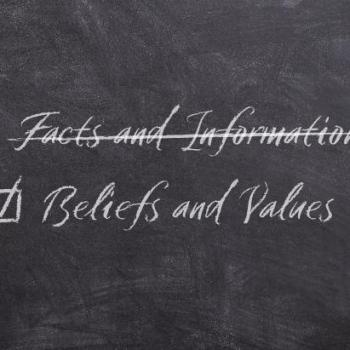
The social sciences have shown time and time again that people’s beliefs are generally more nuanced than they appear to be. Believers in a particular cause or ideology may have core values in common with their group, but when they get a chance to illustrate their personal preferences in detail, most of them employ a sliding scale with variations.
A Welcome Relief
For most of us, knowing that serves as a welcome relief. People are not homogenous; their beliefs are more varied than they appear to be. Enter any group, and you will find slight variations on the overall theme. Christianity in the USA is a great example. There are over a thousand denominations, but everyone still calls themselves a Christian. Furthermore, within small church groups, you will find differences in belief.
Overlooked from a Distance
Unfortunately, this reality can be easily overlooked from a distance. From the opposite side of a socially created chasm, the view is often black and white, with no room for shades of gray. People see a monolith of believers and are quick to judge. Anyone who slightly associates with a specific worldview is perceived as believing the most extreme version of that ideology.
Cognitive Dissonance
Such an inaccurate perception creates cognitive dissonance. What is true about most of us—in essence, that our beliefs and values exist in shades of gray, that we are not extremists—is NOT true about the other side, or, at least, that is what many think.
Go on Twitter for five minutes, and you will see this kind of extremist labeling in droves. It allows for black-and-white narratives that lead to demonization, something that is already tearing at the social fabric.
People Get Offended
In response to extremist labeling, you’ll notice that some people get offended. “Me? I am not an extremist.”
Because most people have nuanced beliefs, many times, that is true. Some may be expressing thoughts similar to what extremists push or wondering about certain topics on social media or in person (although the prevalence on social media is why I wrote this article) and be unfairly judged. One thought does not represent a belief system. In most cases, the rest of people’s thinking is, you guessed it, more nuanced.
Lack of Direct Perception
I am not blind. Extremism is on the rise, and more people are becoming black-and-white thinkers. The problem is that without direct conversations, we cannot ascertain whether beliefs are nuanced or if people are as fanatical as we imagine them to be.
Three Reasons to Look for Nuance
For the sake of social harmony, we need to be willing to explore the possibility of finding nuance for three reasons:
- Nuanced beliefs are the de facto human mindset.
- If people are treated like extremists, they can rise to the occasion, as in, “If you are going to call me a misogynistic pig no matter what I do, I might as well embrace the role” More and more people use this kind of rationale for their behavior.
- People who aren’t extremists can start to see others who employ extremist labels indiscriminately as extremists themselves, leaving no room for bridge-building or compromise.
This last point is probably the most important one. For instance, if Claire is not an extremist but is frequently called one despite her nuanced beliefs, she will start to see those who use unjust labels about her as extremists themselves and will not want to engage in any way, widening an already growing divide.
Subtle Differences Matter
In the dictionary, nuance means “a subtle difference in or shade of meaning and expression.” To look for subtleties, we need to slow down our thinking (stop the knee-jerk reactions) and become curious. I know from experience that it usually takes time to build trust and get people to open up about their nuanced beliefs, especially if they feel like they are under attack. They may stick to the group beliefs in public but admit to subtle differences in private. And those slight differences matter.
Getting Out of the Playground Mentality
“But they are doing it,” is a retort I sometimes heard while running my communications workshops for Charter for Compassion. Yes, they are. But should you? People who want more social harmony and less strife must be willing to ditch that kind of playground mentality and what-aboutism to justify their bad behavior.
The bottom line is that extremism is on the rise. We can either contribute by participating in labeling and demonization, or we can honor nuance and appeal to our shared humanity.
Gudjon Bergmann
Author and Mindfulness Teacher
Amazon Author Profile
Recommended books:
- Monk of All Faiths: Inspired by The Prophet (fiction)
- Spiritual in My Own Way (memoir)
- Co-Human Harmony: Using Our Shared Humanity to Bridge Divides (nonfiction)
- Experifaith: At the Heart of Every Religion (nonfiction)
- Premature Holiness: Five Weeks at the Ashram (novel)
- The Meditating Psychiatrist Who Tried to Kill Himself (novel)
Picture: CC0 License












